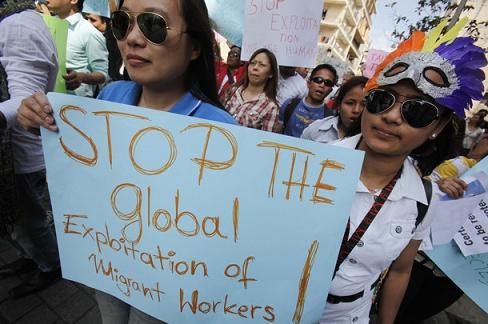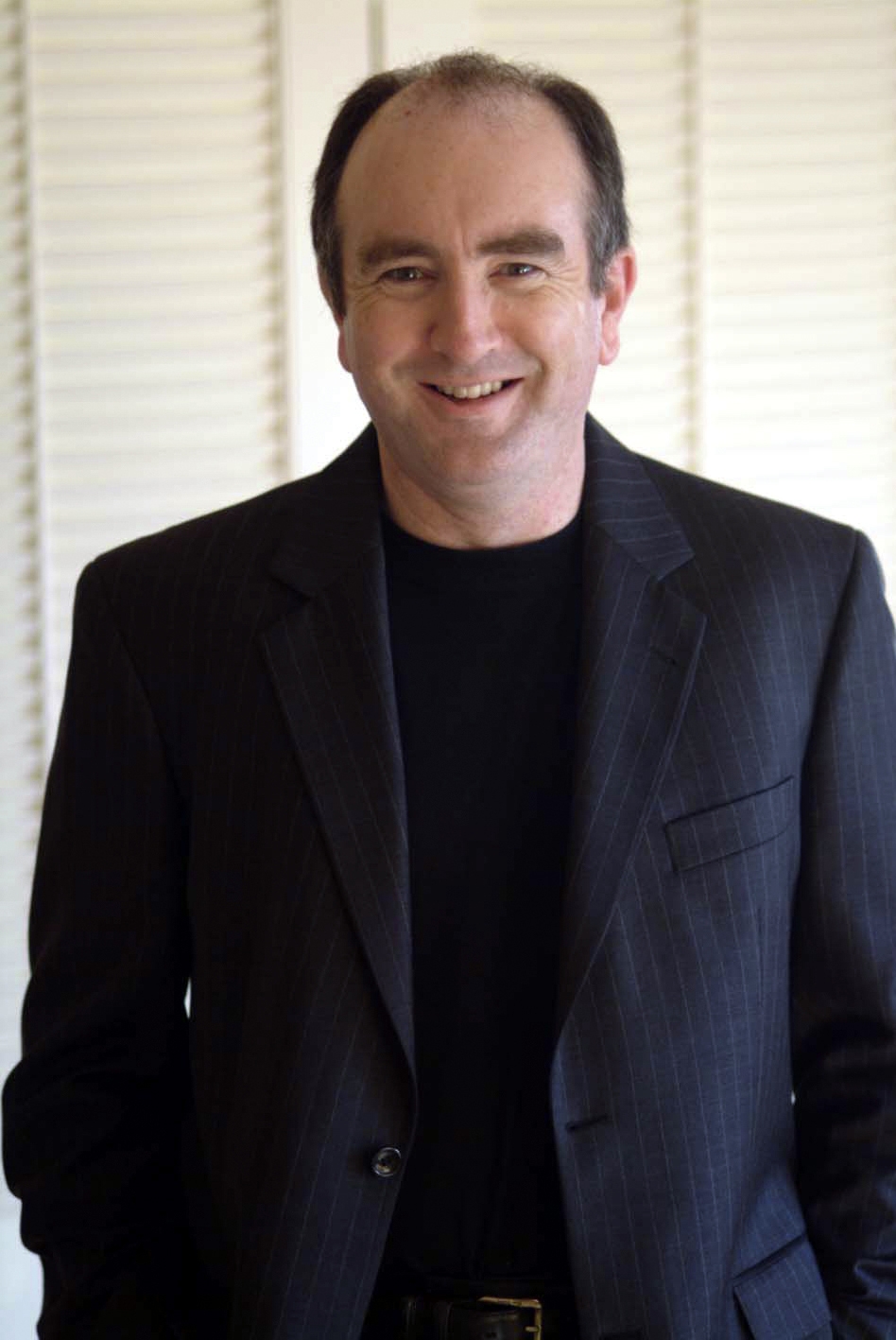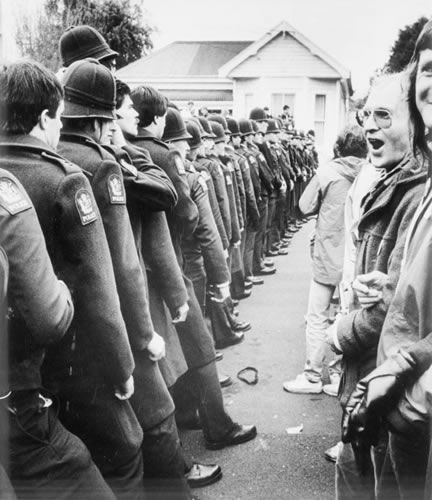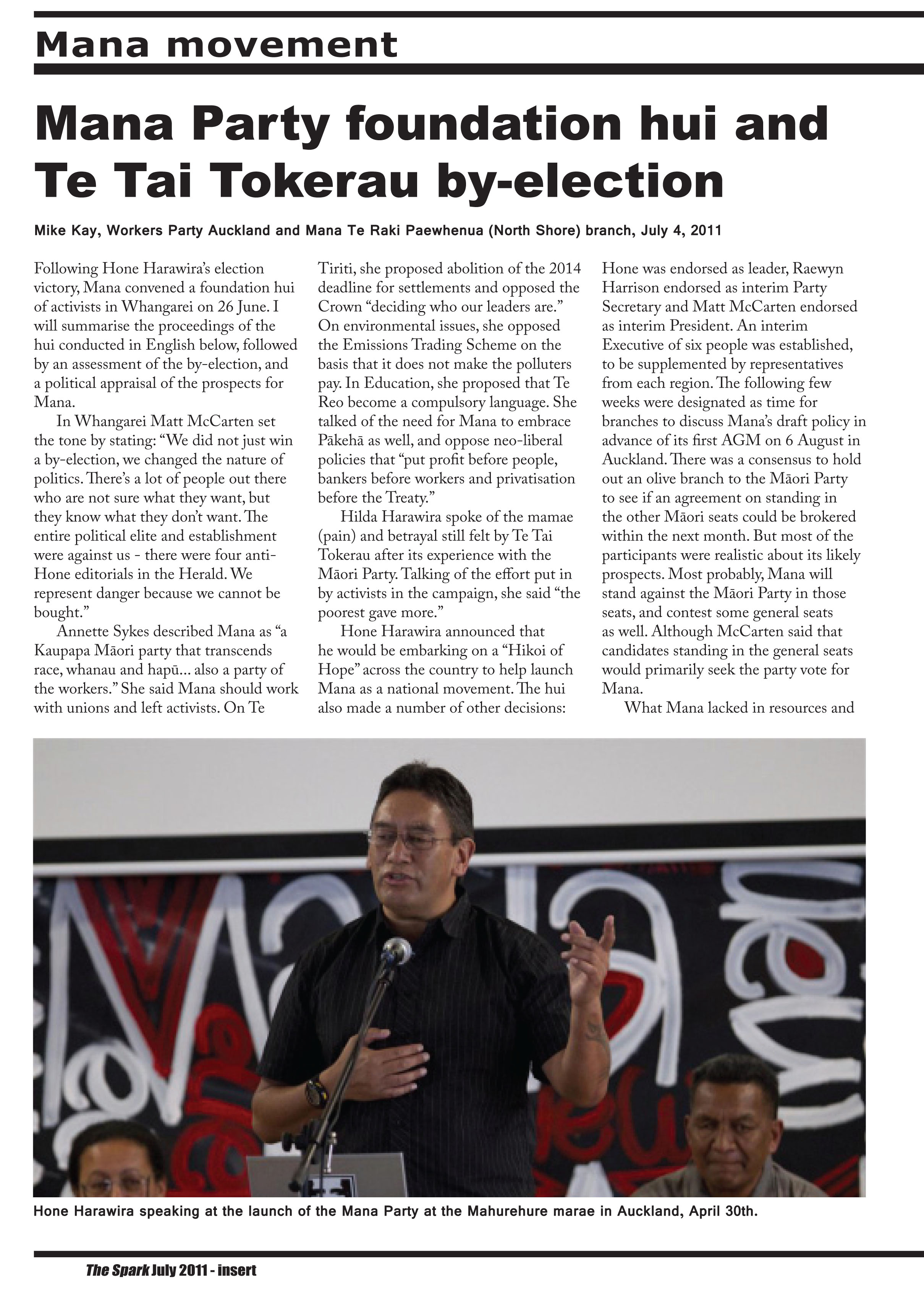The following is a small set of articles about the England riots published by Marxist organisations in the UK.
Committee for a Workers International (socialistworld.net): Inner cities erupt (10/8/11)
http://www.socialistworld.net/doc/5221
Socialist Worker online: Reports from the urban revolt spreading across Britain (10/8/11)
http://www.socialistworker.co.uk/art.php?id=25694
Revolutionary Communist Group: Eyewitness report of the Manchester uprising, 9 August 2011 (10/8/11)
http://www.revolutionarycommunist.org/index.php?option=com_content&view=article&id=2291:eyewitness-report-of-the-manchester-uprising-9-august-2011&catid=82:britain&Itemid=87
Committee for a Workers International (socialistworld.net): Tottenham riots (8/8/11)
http://www.socialistworld.net/doc/5219
London Burning: The truth about the riots
Large scale riots have spread through several cities of England in the past few days. Whilst much of the mainstream media has focussed on looting, some media reports – particularly those containing interviews – have shown some of the social context giving rise to the riots, including poverty and police brutality. The following links were compiled by Alastair Reith.
[youtube=http://www.youtube.com/watch?v=3juq9nPU-v0]
[youtube=http://www.youtube.com/watch?v=CJQHWwEpwAY&feature=related]
Local and international events show need to unite against racism and defend migrant workers
This article, compiled by writers for The Spark, looks at two anti-migrant events that occurred in July 2011 and asserts the necessity of defending migrant workers and advancing the socialist principle of open borders for working people.
Prime Minister John Key last month displayed an openly hostile attitude towards asylum seekers. The Elysia was carrying more than eighty Tamil asylum seekers who were detained by Indonesian maritime authorities near Sumatra. Many of those on the boat were videoed with hand written signs and New Zealand flags signaling that New Zealand is a desirable destination for them.
Key stated blankly, “Our very simple message is they are not welcome”. He continued, “It confirms what I’ve been saying for some time; it’s only a matter of time before large vessels, steel-hulled vessels capable of navigating their way to New Zealand… or far away parts of the world would try to make their way here. They would not be allowed into New Zealand.”
Key’s uncompromising position went further than other mainstream politicians – such as former Prime Minister Helen Clark and Key’s own immigration Minister Jonathon Coleman – who both asserted that it’s unlikely that such boats as the Elysia could make it down to New Zealand. It’s likely that Key’s position was driven by electoralism and an attempt to galvanise amongst non-liberal voters.
Some commentators though like to portray New Zealand as fair and decent. The Helen Clark-led government won some liberal sympathy when New Zealand took in some of the asylum seekers involved in the Tampa refugee ‘crisis’ in 2001. Such liberal sympathy towards that government was misplaced. In parts of Australia refugees are being kept in inhumane conditions for years in detention centers. It’s both morally deplorable and against the interests of working people. But the reality in 2001 and today is that the New Zealand government is in many respects worse than others. It accepts less asylum seekers than does Australia. It has a commitment to the UN to take up to only 750 refugees per year, a comparatively small number, and even then it usually accepts less.

Whilst New Zealand does have a tradition of deep conservatism, it doesn’t have strong traditions of fascism or right-wing extremism. The presence of the far-right in Europe has been highlighted by the terrible events in Norway.
The bombing of government buildings in Oslo which killed seven people was carried-out by right-wing extremist Anders Behring Brevik as a decoy to distract authorities whilst he went about massacring 85 young people and injuring a further 67 at a social democratic youth conference on Utoya Island. Being a right-wing extremist, he blamed the social democratic youth for contributing to what called ‘cultural Marxism’ and ‘Islamic colonisation’. Brevik’s ideology appears to be a blend of rightist conservatism and Nazism.
It is said that Brevik’s careful planning of the attack, including the financing of the attack, was carried out over a number years. This shows that he was a focused right-wing extremist, and it wasn’t the case that he is simply psychopathic. Whilst Brevik’s action is amongst the most extreme carried out by far-rightists in Europe in the post-war period, it shouldn’t be seen as a one-off act of violence.
Far-right activity carried out by boneheads and more organised right-extremists regularly occurs in Europe and in Russia. It consists of violence towards immigrants, leftists, and intellectuals, and has resulted in murders of immigrants. Organised groups on the far-right in Russia have achieved the capacity to execute people in the legal system who have prosecuted or convicted far-rightists.
What should be taken from both centre-right politicians like John Key and from far-rightists who are galaxies to the right of the political centre, is that the most predominant form of racism today is contained in theories against immigration. John Key displays none of the signs of a typical conservative racist. He works with the Maori Party and shortly before the Elysia asylum seeker saga he was touring India participating in sound-bite-sized activities which he probably hopes will shore-up support amongst conservative Indian voters in New Zealand. However, what we’ve seen from the ruling class in New Zealand is that it’s always at the ready to adjust its position on migrants when the economy contracts. Europe, which obviously doesn’t have the type of insulation as does New Zealand against the global financial crisis, is seeing heightened activity from the far-right. As Socialists, no matter what level of persecution is being meted out, we stand up for migrant workers and argue for them to have full access, full opportunity, and no lesser wages, conditions, or income than New Zealand-born citizens.
Science, technology, and Maori
By Mike Kay, Workers Party
The ACT party receives little support from the actual capitalist class, therefore we argue that opposing Act (on the basis that they appear to be the worst of the bunch) should not be a key focus of activity for working class and radical activists. But their latest advert alleging “Maori privilege” has shone a light on some of the racist attitudes still lingering in New Zealand society.

ACT’s Marketing director John Ansell, quit his job with the comment: “These guys (Maori) have gone from the Stone Age to the Space Age in 150 years and haven’t said thanks. That’s the nature of the thing. In Maori world, if one tribe conquers another you eat the guys’ eyeballs. The Brits were pretty civilised by that standard.”
It’s hard to know where to begin with a comment like that. The British ruling class built an empire from the profits of the slave trade on which the sun never set and the blood never dried. That they called civilisation. Meanwhile Maori, along with many other indigenous people, have long been painted as cannibalistic savages. The academic Paul Moon’s recent book alleges that cannibalism in traditional Maori society was a common practice. However, the science tells a different story. Ian Barber of Otago University’s Department of Anthropology stated: “I’m not a cannibalism denier. I think there’s good traditional and historical evidence for a limited form of cannibalism. But what we don’t find in the archaeological record is clear or unequivocal evidence of any kind of widespread or comprehensive cannibalism that would involve the consumption and preparation of significant amounts of human flesh.” (NZ Listener 26/2/11)
But the idea that Maori should be grateful for “Pakeha technology” is probably the most commonplace, and not just amongst rednecks.
Recalling his discussions with his mate Aussie Huata, Dun Mihaka wrote in 1989: “The phenomena of science and technology are not, contrary to popular belief, the sole preserve of the Pakeha, or anyone else for that matter. Rather, it is the cumulative effect of the most advanced ideas that all mankind has gathered from the beginning of time… all peoples, without exception, contribute to it… The two ways by which we all do this, is by way of the hand or by way of the head. In some cases many did both. In other words you either contribute to it by way of the intellect or you contribute to it by way of your labour power. The example I regularly used to illustrate this point was the case of the work that Te Whiti o Rongomai, and his pacifist land rights followers from Taranaki did on the Otago Peninsular. I would say that while I did not dispute the fact that the engineering plan for the road running from Anderson’s Bay out to the Kaik arrived on the same ship that brought the whiteman, the pox, the bible, modern science and technology… the labour-power, the blood, sweat and tears so to speak, that made that engineering plan into a reality was to work of Maori slave labour. I have still to meet someone who, using this method of reasoning, has been able to effectively refute this statement of fact.” Continue reading “Science, technology, and Maori”
Thirty years on: The 1981 Springbok tour and protest today
The following article is written by John Edmundson, a member of the production team of The Spark and Christchurch Branch of the Workers Party. John was highly active in the anti-apartheid movement and was arrested during the Gisborne match of the 1981 tour.
 This year New Zealand hosts the Rugby World Cup and TV viewers all over the world will be getting up at all hours of the morning to watch the games. Something similar was happening exactly thirty years ago this month, when South Africa’s Springboks accepted an invitation from the New Zealand Rugby Football Union (NZRFU) to tour this country. The 1981 Springbok Tour was a momentous time in New Zealand’s history and has been the subject of much debate since. It is sufficiently significant that it is taught in school social studies and history courses as one of the defining and formative episodes in New Zealand’s history.
This year New Zealand hosts the Rugby World Cup and TV viewers all over the world will be getting up at all hours of the morning to watch the games. Something similar was happening exactly thirty years ago this month, when South Africa’s Springboks accepted an invitation from the New Zealand Rugby Football Union (NZRFU) to tour this country. The 1981 Springbok Tour was a momentous time in New Zealand’s history and has been the subject of much debate since. It is sufficiently significant that it is taught in school social studies and history courses as one of the defining and formative episodes in New Zealand’s history.
Apartheid
In 1981, the apartheid system was at its vicious peak in South Africa; memories were still fresh of the 1976 Soweto uprising, when the South African security forces gunned down black school children in the streets for protesting against discriminatory schooling. South Africa was fighting a war in Namibia and was projecting its war into the “frontline states” of Angola and Mozambique with virtual impunity. For its part, the South African resistance was engaging in mass strikes, popular mass protest and a fairly limited armed struggle, primarily through the medium of the African National Congress’s (ANC) Umkhonto we Sizwe (Spear of the Nation).
The campaign to oppose the Springbok tour of New Zealand was part of a huge international campaign to isolate South Africa in every aspect of its international dealings. There was a widely supported boycott of South African exports, a campaign to prevent trade with the Republic, and a sporting and cultural boycott. In New Zealand, the campaign had really kicked off with the “No Maoris No Tour” campaigns in the 1960s, a response to the South African demand that teams touring South Africa “respect” South Africa’s apartheid system and select only white players for their national squads. South Africa’s response to that campaign was to grant “honorary white” status to Maori All Blacks, thereby allowing them to stay in the “Whites Only” team hotel, travel on the team bus etc, rather than use the inferior “Blacks Only” facilities they would normally have been restricted to. The activists leading the anti-apartheid movement saw this as mere window dressing” and argued that even a fully merit based South African team would not be sufficient to lift the boycott since the boycott was not really about sport, but a lever to use against the apartheid system as a whole. Continue reading “Thirty years on: The 1981 Springbok tour and protest today”
Sunday July 17, Auckland contacts meeting
Auckland WP contacts and supporters will be holding a day school/meeting this Sunday in Morningside, Auckland.
Existing members and contacts will be meeting from 10am till 4pm.
Anybody else interested in attending the first part of the day’s activity is welcome to attend to go over a discussion piece from 10am-12 noon. Whilst we do not adhere to all of its content, the discussion will be based on James P. Cannon’s ‘The revolutionary party and its role in the struggle for socialism’ which is viewable here: http://www.marxists.org/archive/cannon/works/1967/party.htm
Please contact Mike Kay on 021-288-5601 for venue details or to see if transport assistance is possible.
The Spark July issue insert – Mana Party foundation hui and Te Tai Tokerau by-election
Access a printable version of The Spark July issue insert. Click here.
This is a recently published version of an article which was previously posted here on this website. Containing minor changes, we are re-publishing it here in a format which supporters may use for distribution.
Post offices and Kiwibank outlets under attack
The following article was first published as a guest contribution to the July issue of The Spark, by trade unionist and Alliance Party co-leader Victor Billot. Billot is also spokesperson for the campaign to Save Dunedin Metro Post Shop and Kiwibank.
New Zealand Post are closing and downgrading a number of post offices around New Zealand, including Kiwibank outlets. One of these is the Dunedin Metro Post Shop and Kiwibank, in the Exchange, Dunedin’s central business district. Another nearby suburban post agency in Mornington was recently closed as well. A community campaign was mounted to stop the closure in Dunedin. It has been an interesting campaign. The users of the post office are a diverse mix, ranging from business people and conservative professionals, office workers, unionists, all the way through to parents, beneficiaries and the elderly. However most people have come to similar conclusions as to why they are opposed to the closure.
They see the decision as being made by remote managers, with little concern or understanding of local communities. People were angered at the lack of interest from NZ Post, and how the closure would create problems for them. The Post Shops that local people will now have to use are already crowded and busy. Continue reading “Post offices and Kiwibank outlets under attack”
Greenpeace loses battle for charity status

By Alastair Reith
A recent High Court decision has stripped Greenpeace New Zealand of its charity status in this country. The court upheld a 2010 ruling by the Charities Commission that the environmentalist organization is “too political” to be classed as a charity. Greenpeace is challenging the decision. The Commission argued that calls by Greenpeace for peace and disarmament could not be classed as charitable and were political in nature, and that while Greenpeace does not openly advocate breaking the law its members have been involved in illegal protest activity. Greenpeace Executive Director Bunny McDiarmid disputed this, arguing that, “Most of the charities that have got charitable status are very much engaged in change they want to see, positive change for our society today.”
This decision will deal a serious blow to Greenpeace. Apart from the mainstream legitimacy that comes from being registered as a charity, registered groups do not have to pay income tax, and people who choose to donate to them receive their money back in tax rebates. Losing charity status will cost Greenpeace a lot of money in the years ahead, and will discourage those on low incomes from donating. Continue reading “Greenpeace loses battle for charity status”
Defend young workers, fight all anti-worker laws (article & main protest event details)
By The Spark editors
This weekend there will be demonstrations in a number of cities to oppose the re-introduction of youth rates and to oppose any extension to the new entrant rate provisions.
National has already attacked working people and unions by changing union access rights, introducing new conditions for access to sick leave, and introducing a probationary employment procedure which provides employers with the power to sack workers without reason in the first 90 days of employment.
John Key and National’s Minister of Labour Kate Wilkinson have not ruled out a return to youth rates and are clearly putting youth rates back in the frame for discussion. Wilkinson, for instance, has cited high youth unemployment as a reason for the government to take a close look at policies that will give work experience to youth.*
The ability of employers to legally pay youth rates below the adult minimum wage for 16-18 year-olds was brought to an end in 2007. This victory was a result of a combined industrial campaign by Unite Union, street campaign by Unite Union and Radical Youth, and parliamentary campaign led by then Green MP Sue Bradford. This was one of the more significant offensive campaigns waged by the labour movement over the past decade. For a whole generation of younger workers it was certainly the most significant.
We will fight any attempts by the bosses and government to roll back wages and conditions of workers of any age group. Continue reading “Defend young workers, fight all anti-worker laws (article & main protest event details)”
